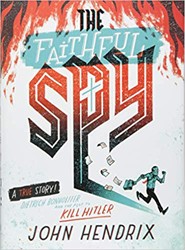The Nazi era continues to stand as an exceptionally horrific period of history, and its genocidal policies as singular and extreme.This view, however, is challenged and attenuated by a powerful wave of normalization, Gavriel D. Rosenfeld argues in this fascinating and important book, particularly evident as we entered the new millennium. This wave of normalization manifests itself in many areas of contemporary intellectual and cultural life, appearing in serious works of scholarship and journalism; in popular novels, film, and television programs; and most prominently in internet culture and social media.
As the mass murder of millions of innocent people is normalized — even trivialized and vulgarized — a catastrophic history is lightened of its historical burden. The very success of the Holocaust’s wide dissemination has worked to undermine its gravity and render it more familiar. Rosenfeld adeptly explores historiographical and cultural trends across the globe with suggestive sections on developments in film, literature, and especially cyberspace to trace this process of normalization and its goal of overturning the exceptionality of the Nazi era. The irony is the more familiar the Holocaust and Hitler’s image become, the more they are presented in humorous and ironic ways, the more they undermine the terrible reality of the Holocaust. Memes like “Disco Hitler,” “Advice Hitler,” and “Hipster Hitler” have gone viral on the internet. What we are witnessing is the Holocaust being turned into something else:a repository of “lessons” about man’s inhumanity to man, a metaphor of victimization in general, a rhetoric for partisan politics, a relativizing of Nazism’s immorality by blurring the line between the Nazi perpetrators and victims, a cinematic or literary backdrop for melodramas, and material for satirical and comedic representations of the Nazi era and Hitler that have anesthetized the Nazi legacy.
There was a time not too long ago when Hitler and Nazis were viewed as symbols of extremity and radical evil. Today, their ubiquity has given them the appearance of normality. For increasing numbers of people the Nazi era has lost its historical specificity and has come to mean almost anything. Rosenfeld believes that the memory of the Holocaust will probably continue to be contested and determined by dialectical forces; remembrance will be shaped by the ongoing struggle between normality and the countervailing forces of morality and singularity. As extraordinary and provocative study shows, the steady normalization of the Holocaust, together with the passage of time and the diminishing number of survivor voices, will blunt the horrors of this history and continue to render them less outrageous and ultimately less horrible. Anyone interested in how historical memory — particularly of the Holocaust — is created and transformed, will find this book indispensable.
Related Content:
- Reading List on Hitler and the Third Reich
- Nat Bernstein: On Anne Frank and Justin Beiber
- Margaret Ackerman: Writing About the Holocaust





